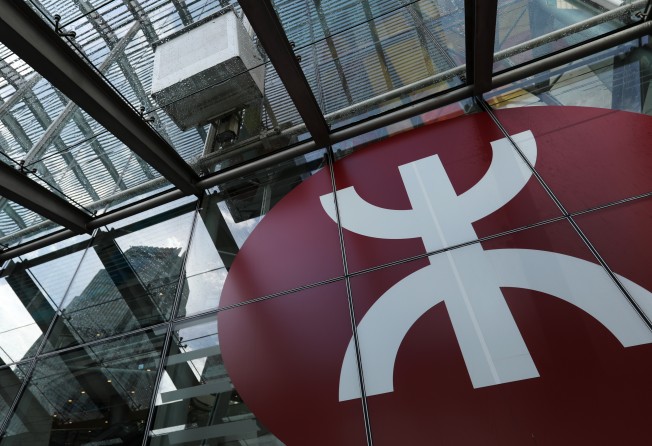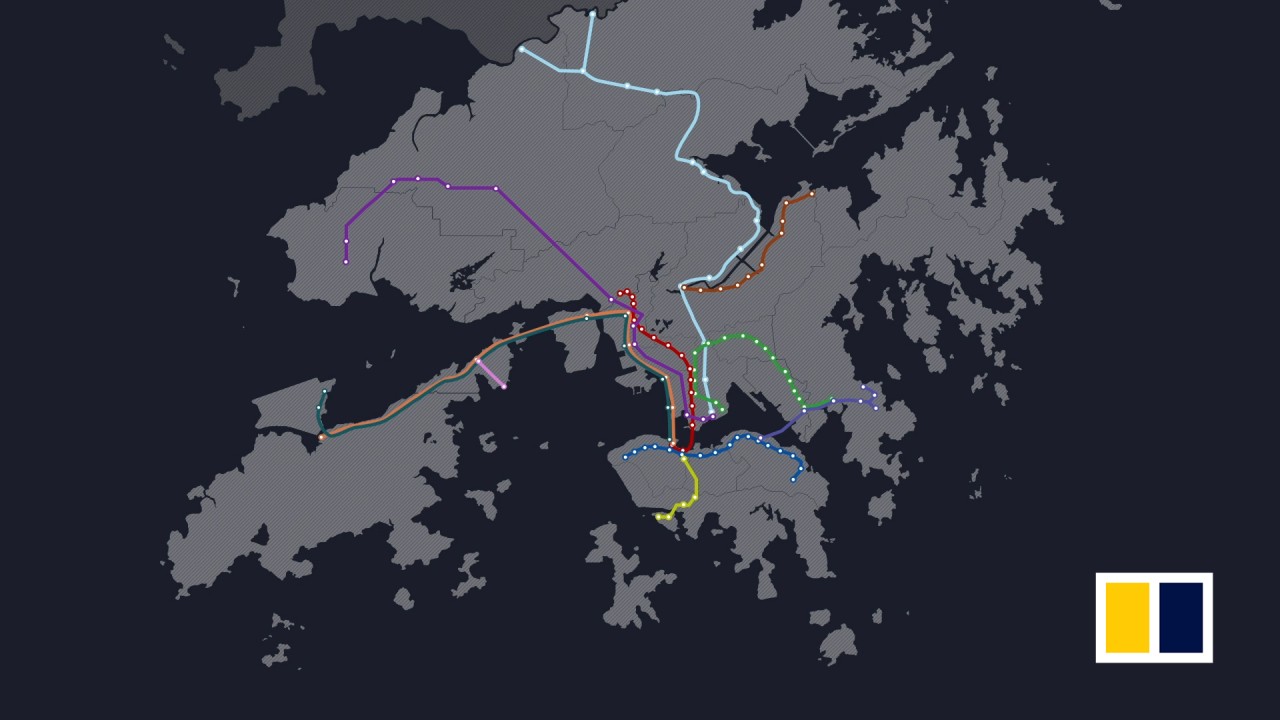
03:31
Meet the voice you hear every day as you ride Hong Kong's MTR

Hong Kong’s MTR Corporation lost money last year for the first time since its listing two decades ago, posting a record deficit totalling HK$4.8 billion, and warned drastic fare rebates were unlikely to continue.
The MTR Corp’s losses stood in stark contrast to the HK$11.9 billion net profit it recorded in 2019 – also a rough year for the operator, which had come under fire amid the sweeping social unrest that roiled the city for months over the now-withdrawn extradition bill.
But on Thursday, the rail giant’s CEO Jacob Kam Chak-pui said while it had been hit hard by the coronavirus pandemic last year, and faced unprecedented challenges, the operator’s “businesses remain stable”.
“2020 has been the most challenging year in our 40-year history. The Covid-19 pandemic impacted our businesses both inside and outside Hong Kong,” he said. “Despite the challenges, our businesses remain stable.”

03:31
Meet the voice you hear every day as you ride Hong Kong's MTR
Recurrent business suffered HK$1.1 billion in losses in 2020, compared with HK$5 billion in profits the year before, reflecting the impact of the pandemic and the city’s ensuing recession.
Passenger numbers were also down on MTR rail services, with 31.5 per cent fewer trips taken last year than in 2019. The firm’s transport operations posted a deficit of HK$5.4 billion, compared to a loss of HK$591 million in 2019.
Facing the record losses, Kam said the 20 per cent fare rebates, originally expected to last for six months and later extended by three months until the end of March, were unlikely to continue.
Half of the revenue lost through the 20 per cent fare discount was borne by the government.
“We have been trying our best to offer different kinds of fare and rental concessions for our passengers and tenants to ride out the tough time,” Kam said.
“But fare revenue is the main source of our income. It’s very hard for us to continuously provide this 20 per cent fare rebate on our own.”
As to whether there would be other reductions on train fares as part of the annual fare adjustment exercise, Kam said the outcome would be finalised at the end of this month and any concessions would be announced in one go.
The corporation also incurred a HK$9.2 billion loss in the revaluation of its investment properties last year, compared with a HK$1.4 billion gain in 2019.
Last year, stringent social-distancing measures, work-from-home arrangements, school closures, immigration controls and quarantine requirements dealt a heavy blow to global travel and consumer spending.
In a bid to contain the virus, all cross-border railway services have been suspended since January 30 last year, and all but three of Hong Kong’s border checkpoints have been closed indefinitely.
As a result, the MTR Corp’s cross-border services – including high-speed rail, intercity lines and its busy Lo Wu and Lok Ma Chau routes – ground to a complete halt.

01:50
Hong Kong’s MTR by the numbers
The corporation’s rental revenues from train stations and shopping malls, meanwhile, also shrank significantly last year after it granted subsidies to tenants.
Despite the challenges ahead, Kam said he remained hopeful about the rail giant’s business recovery but warned it might take a long time.
“We’ll continue to face a lot of challenges in this current year as the recovery may take a long time to come,” he said. “It may take more than one year to resume patronage levels close to previous records.
“We are hoping as the pandemic subsides and its impact reduces, we’ll start to see recovery on both our patronage and revenue and of course our rental income.”
Kam said the MTR Corp would invest more than HK$100 billion in new rail lines and property projects, and hoped the measures would create more jobs and opportunities for Hongkongers. The new projects include the Tung Chung Line extension, Tuen Mun South extension, and the Siu Ho Wan depot development project.
Quentin Cheng Hin-kei, spokesman for the commuter concern group Public Transport Research Team, called for a fare freeze despite the fact the rail giant was expected to face continued losses this year.
“There is still a long way to go before the borders could be fully opened and the return of tourists. I still hold a dim view of its business outlook this year,” he said.
Amid the economic downturn, he called on the MTR Corp to at least freeze fares, irrespective of the outcome of its fare adjustment mechanism, and not to cut staff or salaries, even if it needed to reduce costs.
The operator also had to cough up HK$1.4 billion last year as an additional project management cost for the construction of the HK$90.7 billion Sha Tin-Central link, the city’s most expensive rail project, which has suffered years of delays and cost overruns.
Despite repeated requests by the MTR Corp, the government had refused to pay the additional sum, saying it did not see any justification for making the payment.
The government now owns about 75 per cent of the corporation after it was partially privatised in 2000.
MTR Corp shares dropped 25 HK cents, or 0.51 per cent, to HK$48.75 on Thursday before the results were announced.